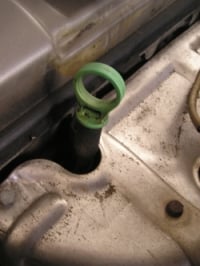1 min read
Summer Car Care Tips for 2020
We're all hopeful that the coronavirus pandemic won't rear its ugly head again later this year. So we talk about the summer driving season with a...

 Regular oil changes are essential to getting the most life out of your vehicle. That being said, you don’t want to have to spend more on oil changes in the summer if you don’t have to. So here are some guidelines to help you maximize the benefit from your oil changes in the summer while preserving the contents of your bank account.
Regular oil changes are essential to getting the most life out of your vehicle. That being said, you don’t want to have to spend more on oil changes in the summer if you don’t have to. So here are some guidelines to help you maximize the benefit from your oil changes in the summer while preserving the contents of your bank account.
That’s what has been preached to us over the years – 3,000 miles per oil change. Turns out that you’re wasting money if you follow this advice.
It’s always a good idea to follow the recommendations of your owner’s manual. Most owner’s manuals specify six months and between five to seven thousand miles per change, a little sooner if you drive under “severe conditions”.
All bottled oils come with additive packages already included from the refinery. These additives help to neutralize the acids that build up during use and disperse harmful particles to keep them from scratching metal surfaces. Most of these additive packages are used up within the first 500 to 1,000 miles of use. Beyond that, it’s just a matter of how long you allow the acids and particles to accumulate in the oil before changing it.
For all intents and purposes, there’s little difference between oil at 3,000 miles and at 5,000 miles. So don’t waste time and money changing the oil at 3,000 miles. Feel confident in sticking with your owner’s manual recommendations (5,000 – 7,000 miles).
It’s always a good idea to consult your owner’s manual for the type of oil that’s best for your engine. As a general rule, you’ll get the best protection in the summer when you use a slightly thicker grade of oil, such as a 10W30 instead of a 5W30. Engines need a thicker oil in the summer months because of the summer heat and its effects on thinning the oil out. When the weather cools down, you can switch back to lighter, thinner oil, which will help preserve gas mileage in the winter months.
Adding X-TRA LUBE oil treatment to your engine in the summer is a great idea. X-tra Lube oil treatment will actually reduce the operating temperature of your engine, due to its superior effects on reducing friction and wear. A smoother running, cooler engine is a great thing in the summer months.
1 min read
We're all hopeful that the coronavirus pandemic won't rear its ugly head again later this year. So we talk about the summer driving season with a...
Memorial Day is at the end of the month and, with it comes the start of the unofficial Summer Driving Season. Of this, two things are true every...

The United States Environmental Protection Agency and market forces have made it increasingly difficult to find gasoline made without ethanol....